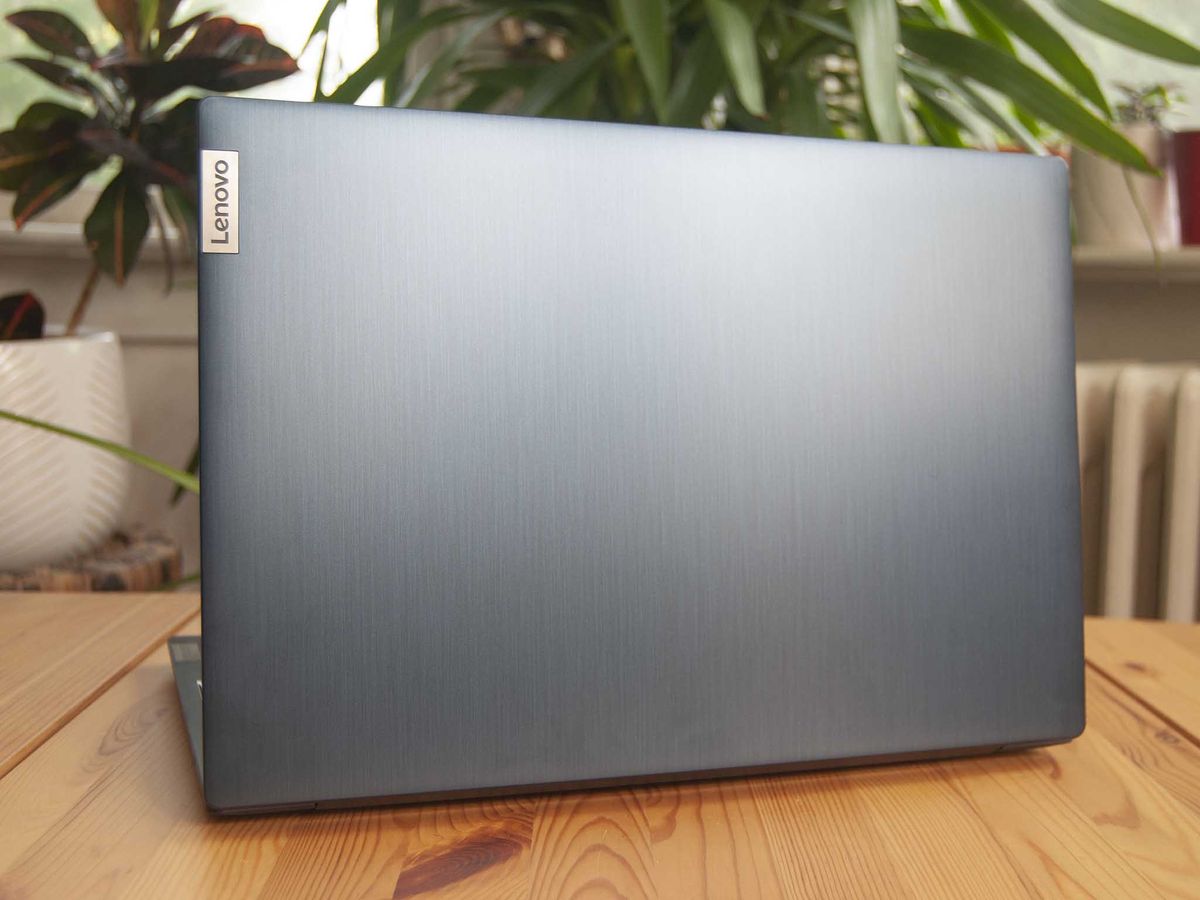
Upgrading the SSD in the Lenovo IdeaPad 3 15 can turn the ultra-budget $400 laptop into a warehouse of data. You do get a 256GB M.2 solid-state drive (SSD) from the factory that's relatively speedy, but you can seriously improve things without much effort at all. We've laid out all the steps — and some recommended hardware — right here so you can get the right amount of storage in your IdeaPad 3 15.
How to upgrade the SSD in your Lenovo IdeaPad 3 15
Note: Before beginning any upgrades on a PC, it's a good idea to back up your data in the unlikely event something should go wrong. You'll also want to ensure you're not working in a static-filled environment since it can cause damage to a PC's internal hardware.
The Lenovo IdeaPad 3 15 comes standard with an M.2 2242 (half-size) PCIe NVMe SSD. It's quite fast, with 2,331MB/s read and 1,592MB/s write speeds as tested, and most people will find that it's perfect for their needs. However, the 256GB size limit might cramp your storage style. That's not a whole lot these days, especially if you're not using something like OneDrive cloud backup.
The IdeaPad 3 15 has room inside for a full-size M.2 2280 SSD, so you can use one of our picks for best SSD. I recommend checking out something like Samsung 970 EVO Plus or the SK hynix Gold P31. As I mentioned in the IdeaPad 3 15 review, there's also space inside for a 2.5-inch SSD. However, there's no cabling to hook it up, making it a non-starter.
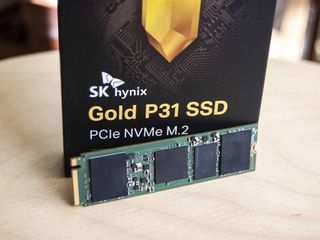
There's only one M.2 SSD slot inside the laptop, so you'll have to decide whether you want to keep all your data the exact same on the new drive or if you want to start over with a fresh install of Windows 10. If you do want to keep everything the exact same, you'll want to clone the data and OS to the new SSD using an external enclosure. I've written a step-by-step guide on how to clone your SSD to help you through the process.
If the data on the original SSD isn't particularly important to you, a fresh install of Windows 10 following the drive upgrade can be done. There are, however, a few things to take care of before the upgrade; our guide to a clean install of Windows 10 has everything you need to know.
Once you've cloned the drive or have decided to do a fresh install, power down your IdeaPad 3 15. Clear out a well-lit workspace and proceed with the following steps to upgrade your SSD.
Get the Windows Central Newsletter
All the latest news, reviews, and guides for Windows and Xbox diehards.
- Unscrew the 10 fasteners on the bottom of the laptop using a Phillips-head screwdriver. Note that the front screws are shorter than the rest. Also, keep them separated for reassembly.
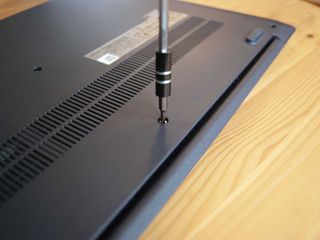
- Pry up the bottom panel using a pry tool or guitar pick. Start at a corner or loose point and work your way around carefully to prevent damage.

- Remove the heat pad covering the M.2 2242 SSD.
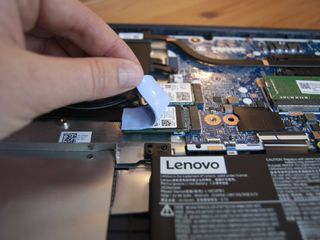
- Unscrew the fastener holding the SSD in place.
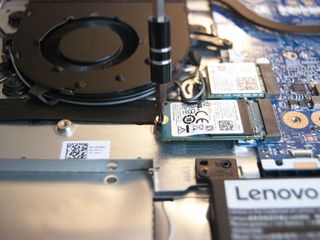
- Pull the SSD away from the slot. Don't lift straight up or you will risk damaging the slot.
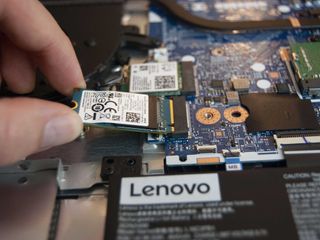
- Unscrew the hex riser for the 2242 size SSD (unless you're upgrading with another half-size drive).
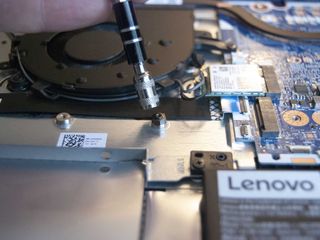
- Screw the hex riser into the longer position.
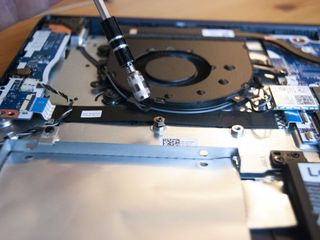
- Insert the new SSD into the slot at about a 25-degree angle. The drive and slot are both keyed and will only fit one way.
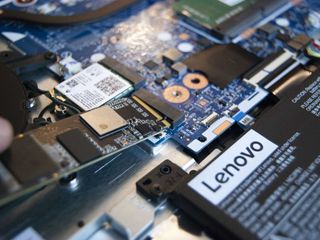
- Screw in the fastener that holds the SSD in place. Note that you will have to use the different mount if you're upgrading with a full-size M.2 2280 SSD.
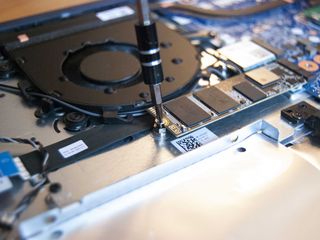
- Replace the heat pad on the SSD.
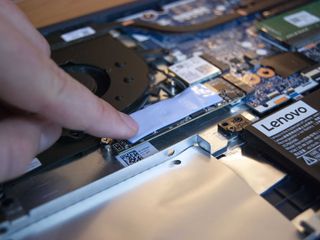
- Replace the bottom panel by applying pressure around the edges and middle.
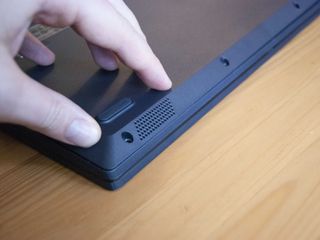
- Screw in the 10 fasteners on the bottom of the laptop.
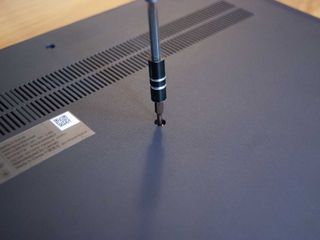
If you didn't clone your data, you can now go ahead with a clean install of Windows 10. Otherwise, if you did clone the drive, you should be able to boot up your laptop as usual.
Our top hardware and software picks
We recommend checking out either the Samsung 970 EVO Plus or SK hynix Gold P31 M.2 PCIe NVMe SSD as an upgrade pick. They're both fast and affordable, with large sizes available for more storage.

Samsung's 970 EVO Plus brings blistering read and write speeds, a competitive price, and a five-year warranty, which altogether is an impressive package. Sizes start at 250GB and go up to 2TB.

Excellent performance but affordable
The SK hynix Gold P31 cuts the price out from a lot of the competition, yet it offers stronger endurance and faster performance. It's an excellent option for anyone looking to upgrade their PCIe 3 storage.
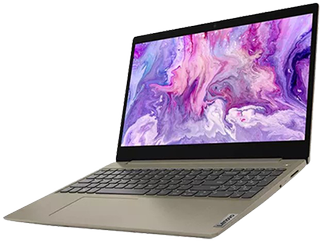
The display, ports, and touchpad are the weakest points here, but the IdeaPad 3 15 will still be able to handle school and home office work. Upgrade the RAM and SSD to better suit your needs.
Additional equipment
To make the upgrade process easier and less risky, consider investing in some of these affordable PC tools, and don't forget about Macrium Reflect and an external enclosure if you want to clone drives.
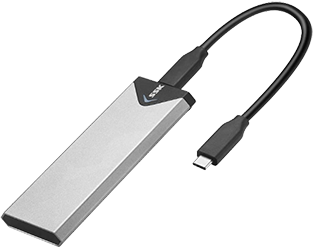
SSK M.2 enclosure ($19 at Amazon)
This affordable aluminum enclosure works with M.2 PCIe NVMe SSDs like the Samsung 970 EVO Plus and SK hynix Gold P31 for cloning. Connect to the Swift 3 with USB-C.
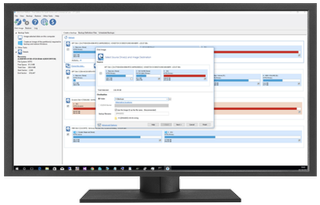
Macrium Reflect 7 (Free at Macrium)
We've had success cloning drives with Macrium Reflect 7, and have even written a complete guide on how to use it properly. A free edition is available, but you can purchase a full edition with a bunch more features for those who truly take backups seriously.
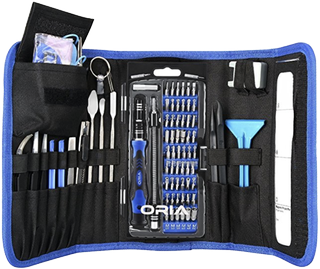
ORIA PC toolkit ($29 at Amazon)
Having the proper gear to work on your PC will always make the job much easier. Here you get a plethora of tools contained in a portable case.
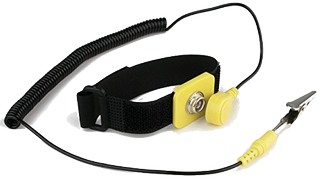
Rosewill anti-static wristband ($7 at Amazon)
Static electricity can damage sensitive PC parts, so remove the risk with an anti-static wristband. Fasten it around your wrist and clip it onto your PC for peace of mind.

Cale Hunt brings to Windows Central more than eight years of experience writing about laptops, PCs, accessories, games, and beyond. If it runs Windows or in some way complements the hardware, there’s a good chance he knows about it, has written about it, or is already busy testing it.